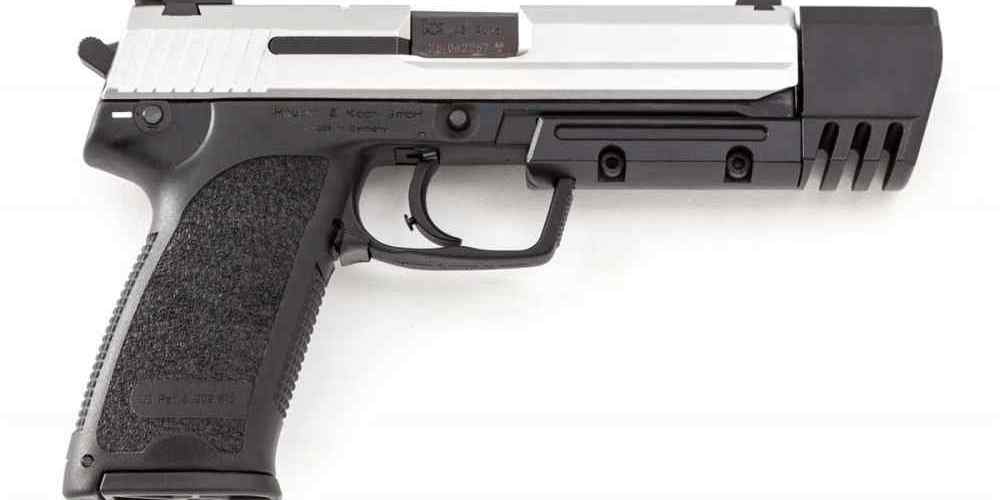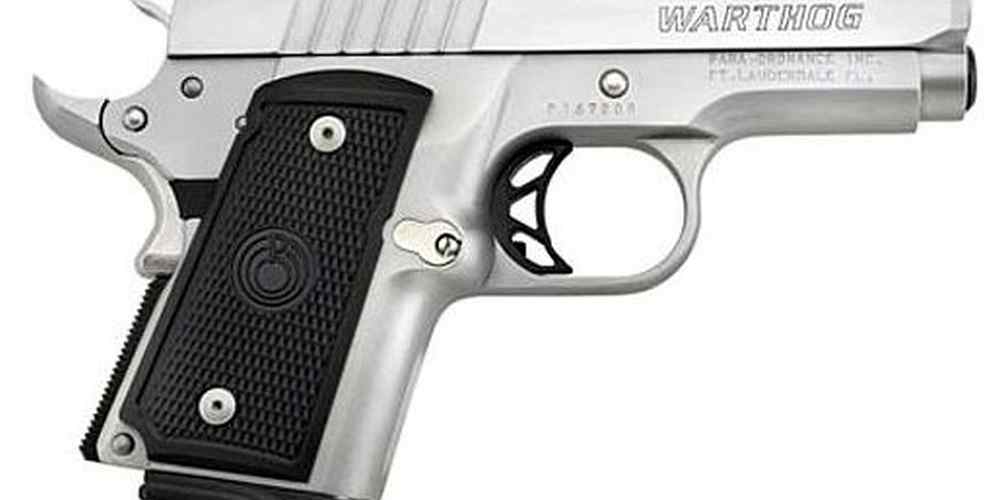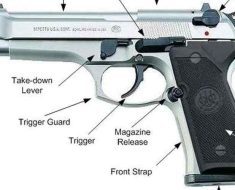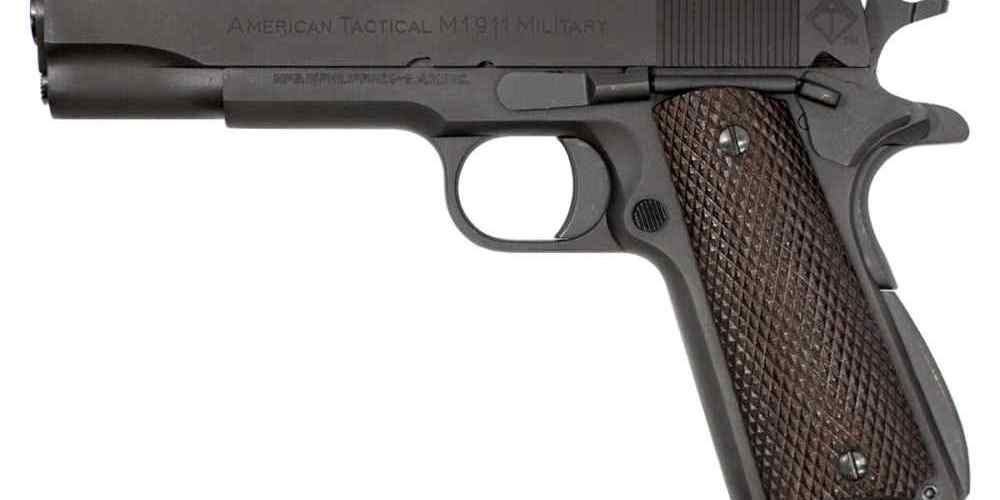“Barrel length matters: maximizing performance in semi-auto pistols.”
Accuracy
When it comes to semi-automatic pistols, barrel length is a crucial factor that can significantly impact the performance of the firearm. In this article, we will explore the relationship between barrel length and accuracy in semi-auto pistols.
Barrel length plays a key role in determining the accuracy of a pistol. A longer barrel typically results in better accuracy due to increased muzzle velocity and improved stability. The longer the barrel, the more time the bullet has to accelerate before exiting the muzzle, resulting in a flatter trajectory and better overall accuracy.
On the other hand, a shorter barrel may sacrifice some accuracy for increased maneuverability and ease of concealment. Shorter barrels are often preferred for concealed carry pistols, as they are easier to draw quickly and are more comfortable to carry for extended periods.
It is important to note that while barrel length can impact accuracy, it is not the only factor to consider. The quality of the barrel, the ammunition used, and the shooter’s skill level all play a role in determining the overall accuracy of a pistol.
In general, longer barrels are preferred for target shooting and long-range accuracy, while shorter barrels are better suited for close-quarters combat and self-defense situations. Ultimately, the best barrel length for a semi-auto pistol will depend on the intended use of the firearm and the preferences of the shooter.
When selecting a semi-auto pistol for accuracy, it is important to consider the intended use of the firearm. If you are primarily using the pistol for target shooting or competition, a longer barrel may be the best option. However, if you are looking for a pistol for self-defense or concealed carry, a shorter barrel may be more practical.
It is also important to consider the type of ammunition you will be using with your pistol. Different types of ammunition perform differently with varying barrel lengths. It is important to test different types of ammunition with your pistol to determine which performs best for your specific barrel length.
In addition to barrel length, the quality of the barrel itself can also impact accuracy. A high-quality barrel with precise rifling and a smooth bore will generally result in better accuracy than a lower-quality barrel. It is worth investing in a pistol with a high-quality barrel if accuracy is a top priority for you.

Finally, the shooter’s skill level and experience will also play a significant role in determining the accuracy of a semi-auto pistol. Practice, training, and proper technique are essential for achieving optimal accuracy with any firearm, regardless of barrel length.
In conclusion, barrel length is an important factor to consider when selecting a semi-auto pistol for accuracy. Longer barrels generally result in better accuracy due to increased muzzle velocity and stability, while shorter barrels offer increased maneuverability and ease of concealment. Ultimately, the best barrel length for a semi-auto pistol will depend on the intended use of the firearm and the preferences of the shooter. By considering all of these factors, you can select a pistol that offers the best balance of accuracy and performance for your needs.
Recoil
When it comes to semi-automatic pistols, there are many factors that can impact their performance. One of the most important factors to consider is the barrel length. The length of the barrel can have a significant impact on the recoil of the pistol, which in turn can affect accuracy and overall shooting experience.
In general, a longer barrel will result in less felt recoil. This is because a longer barrel allows for more time for the gases produced by the firing of the round to escape before the bullet exits the barrel. This means that there is less pressure pushing back on the shooter’s hand, resulting in a smoother shooting experience.
On the other hand, a shorter barrel will result in more felt recoil. This is because there is less time for the gases to escape before the bullet exits the barrel, resulting in more pressure pushing back on the shooter’s hand. This can make shooting a pistol with a shorter barrel more difficult, especially for those who are not used to handling recoil.
In addition to recoil, barrel length can also impact the velocity and accuracy of the bullet. In general, a longer barrel will result in higher bullet velocity and better accuracy. This is because the longer barrel allows for more time for the gases to propel the bullet forward, resulting in a higher velocity. Additionally, the longer barrel provides a longer sight radius, which can help improve accuracy.
Conversely, a shorter barrel will result in lower bullet velocity and potentially lower accuracy. This is because there is less time for the gases to propel the bullet forward, resulting in a lower velocity. Additionally, the shorter sight radius can make it more difficult to aim accurately.
Overall, the impact of barrel length on semi-automatic pistol performance is significant. A longer barrel can result in less felt recoil, higher bullet velocity, and better accuracy, while a shorter barrel can result in more felt recoil, lower bullet velocity, and potentially lower accuracy.
It is important for shooters to consider their own preferences and shooting style when choosing a pistol with a certain barrel length. Some shooters may prefer the reduced recoil of a longer barrel, while others may prioritize the compactness and ease of handling of a shorter barrel.
In conclusion, the impact of barrel length on semi-automatic pistol performance is an important factor to consider when choosing a pistol. The length of the barrel can impact recoil, velocity, and accuracy, so shooters should carefully consider their own preferences and shooting style when making a decision. Ultimately, the best barrel length for a semi-automatic pistol will depend on the individual shooter and their specific needs and preferences.
Velocity
When it comes to semi-automatic pistols, barrel length plays a crucial role in determining the performance of the firearm. One of the key factors affected by barrel length is velocity, which refers to the speed at which a bullet travels after being fired from the gun. In this article, we will explore how barrel length impacts velocity in semi-auto pistols and why it is important for shooters to understand this relationship.
The length of the barrel in a semi-automatic pistol directly affects the velocity of the bullet. In general, longer barrels tend to produce higher velocities, while shorter barrels result in lower velocities. This is because the longer barrel allows for more time for the gunpowder to burn and propel the bullet forward, resulting in a higher muzzle velocity.
For shooters, understanding the impact of barrel length on velocity is important for several reasons. First and foremost, velocity directly affects the accuracy and range of a firearm. A bullet traveling at a higher velocity will have a flatter trajectory and be less affected by external factors such as wind resistance. This means that a pistol with a longer barrel and higher velocity will be more accurate at longer distances compared to one with a shorter barrel and lower velocity.
Additionally, velocity also plays a role in the terminal ballistics of a bullet. Terminal ballistics refers to the behavior of a bullet upon impact with a target. A bullet traveling at a higher velocity will have more kinetic energy upon impact, which can result in greater tissue damage and stopping power. This is why law enforcement and self-defense shooters often prefer pistols with higher velocities for maximum effectiveness in stopping threats.
It is worth noting that while longer barrels generally result in higher velocities, there is a point of diminishing returns. Once a certain barrel length is reached, the increase in velocity becomes marginal and may not justify the added length and weight of the firearm. Shooters must strike a balance between barrel length, velocity, and practicality to find the optimal performance for their needs.
In addition to velocity, barrel length also affects other aspects of pistol performance. For example, longer barrels can help reduce muzzle flip and felt recoil, making the firearm more comfortable to shoot. This can be particularly beneficial for shooters who are sensitive to recoil or who need to quickly follow up shots in rapid-fire situations.
On the other hand, shorter barrels are more compact and easier to conceal, making them ideal for concealed carry or personal defense purposes. However, shooters must be aware that shorter barrels may sacrifice some velocity and accuracy compared to longer barrels. It is important for shooters to consider their intended use for the pistol and weigh the trade-offs between barrel length and performance.
In conclusion, barrel length plays a significant role in determining the velocity and overall performance of a semi-automatic pistol. Shooters must understand how barrel length affects velocity and consider their specific needs and preferences when choosing a firearm. By finding the right balance between barrel length, velocity, and practicality, shooters can maximize the performance of their pistol and achieve optimal results on the range or in real-world situations.
Concealability
When it comes to choosing a semi-automatic pistol for concealed carry, there are many factors to consider. One of the most important factors is the barrel length of the pistol. The barrel length can have a significant impact on the performance of the pistol, as well as its concealability.
In general, shorter barrel lengths are better for concealability. A shorter barrel makes the pistol easier to conceal under clothing, as it reduces the overall length of the gun. This can be especially important for those who need to carry their pistol in a concealed manner for self-defense or other purposes.
However, there are some trade-offs to consider when choosing a pistol with a shorter barrel length. One of the main trade-offs is accuracy. In general, longer barrel lengths are more accurate than shorter barrel lengths. This is because the longer barrel provides a longer sight radius, which can help improve accuracy when aiming the pistol.
Another trade-off to consider is muzzle velocity. In general, longer barrel lengths can provide higher muzzle velocities, which can result in more energy being transferred to the target upon impact. This can be important for self-defense situations where stopping power is crucial.
Despite these trade-offs, many people still prefer pistols with shorter barrel lengths for concealed carry. This is because the benefits of concealability often outweigh the drawbacks of reduced accuracy and muzzle velocity. Additionally, advancements in pistol design and ammunition technology have helped to mitigate some of these drawbacks, making shorter barrel lengths more viable for concealed carry.
When choosing a pistol for concealed carry, it is important to consider your own needs and preferences. If concealability is your top priority, then a pistol with a shorter barrel length may be the best option for you. However, if accuracy and muzzle velocity are more important to you, then you may want to consider a pistol with a longer barrel length.
Ultimately, the impact of barrel length on semi-automatic pistol performance is a complex issue that depends on a variety of factors. It is important to carefully consider your own needs and preferences when choosing a pistol for concealed carry, and to weigh the trade-offs of barrel length accordingly.
In conclusion, barrel length can have a significant impact on the performance of a semi-automatic pistol, especially when it comes to concealability. While shorter barrel lengths are generally better for concealability, there are trade-offs to consider in terms of accuracy and muzzle velocity. It is important to carefully consider your own needs and preferences when choosing a pistol for concealed carry, and to weigh the trade-offs of barrel length accordingly.
Reliability
When it comes to choosing a semi-automatic pistol, there are many factors to consider. One of the most important aspects to take into account is the barrel length of the firearm. The barrel length of a pistol can have a significant impact on its performance, particularly in terms of reliability.
A longer barrel typically results in increased accuracy and velocity, as the bullet has more time to build up speed before exiting the barrel. However, longer barrels can also be more cumbersome and less practical for everyday carry. On the other hand, shorter barrels are more compact and easier to conceal, but they may sacrifice some accuracy and velocity.
In terms of reliability, barrel length can play a crucial role in how well a semi-automatic pistol functions. A longer barrel can provide more room for the gas pressure to build up behind the bullet, which can help ensure that the firearm cycles properly. This can be especially important when using ammunition with lower power loads, as a longer barrel can help compensate for the reduced pressure.
Conversely, a shorter barrel may not provide enough space for the gas pressure to build up, which can lead to malfunctions such as failure to eject or failure to feed. This can be particularly problematic in self-defense situations where reliability is paramount. In these cases, a longer barrel may be a better choice to ensure that the pistol functions reliably when it matters most.
It’s also worth noting that the design of the pistol can impact how well it functions with different barrel lengths. Some pistols are specifically designed to work best with a certain barrel length, and using a different length can result in decreased reliability. It’s important to consider the manufacturer’s recommendations when choosing a barrel length for your semi-automatic pistol.
In addition to reliability, barrel length can also affect the recoil of a semi-automatic pistol. A longer barrel typically results in less felt recoil, as the weight of the barrel helps absorb some of the energy from the firing process. This can make shooting more comfortable and help improve accuracy, particularly for shooters with less experience.
On the other hand, a shorter barrel may result in more felt recoil, as there is less weight to absorb the energy from the firing process. This can make shooting more challenging, particularly for shooters who are sensitive to recoil. It’s important to consider your own comfort level with recoil when choosing a barrel length for your semi-automatic pistol.
In conclusion, barrel length can have a significant impact on the reliability of a semi-automatic pistol. A longer barrel can help ensure that the firearm functions properly, particularly with lower power loads. However, it’s important to consider the trade-offs in terms of accuracy, velocity, and recoil when choosing a barrel length for your pistol. Ultimately, the best barrel length for you will depend on your own preferences and shooting needs.






